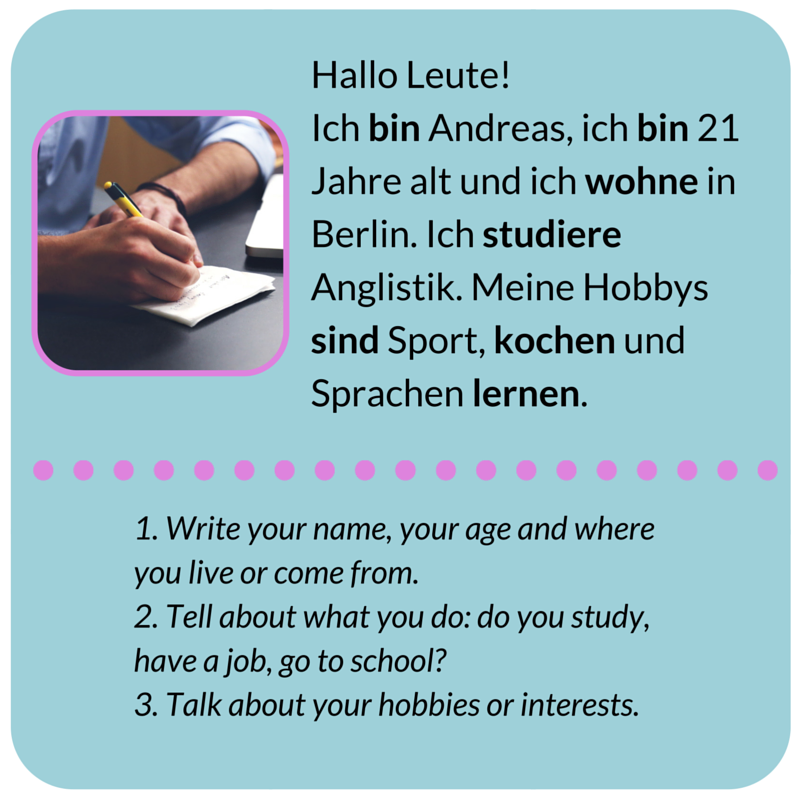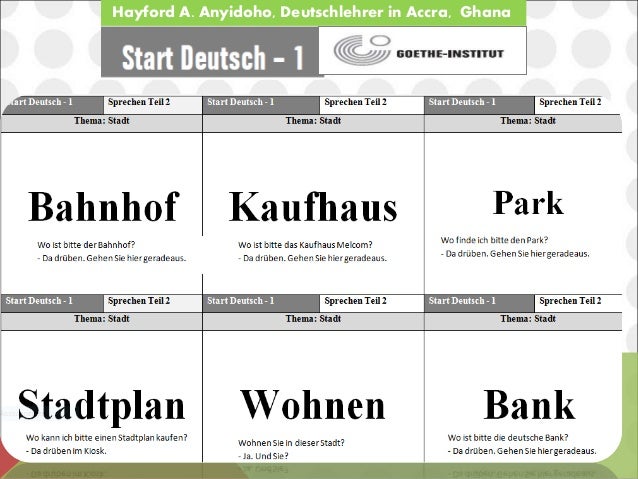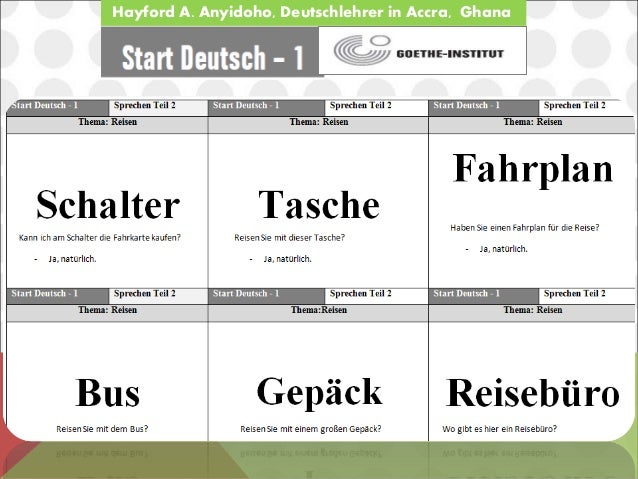Tamil Greetings
 Useful phrases in Tamil
A collection of useful phrases in formal and informal Tamil. Formal Tamil or செந்தமிழ் [centamiḻ] is generally used in formal writing and speech, while informal Tamil or கொடுந்தமிழ் [koṭuntamiḻ] is used in everyday coversation, also in cinema, theatre and popular entertainment on television and radio, and many politicians use it to bring themselves closer to their audience.
Recordings are in male and female voices. Click on the [ml] for the male ones and [fm] for the female ones.
Useful phrases in Tamil
A collection of useful phrases in formal and informal Tamil. Formal Tamil or செந்தமிழ் [centamiḻ] is generally used in formal writing and speech, while informal Tamil or கொடுந்தமிழ் [koṭuntamiḻ] is used in everyday coversation, also in cinema, theatre and popular entertainment on television and radio, and many politicians use it to bring themselves closer to their audience.
Recordings are in male and female voices. Click on the [ml] for the male ones and [fm] for the female ones.
Click on any of the phrases that are links to hear them spoken. If you can provide recordings, corrections or additional translations, please contact me.
To see these phrases in many other languages click on the English versions. If you’d like to see these phrases in any combination of two languages, try the Phrase Finder.
Formal Tamil phrases (செந்தமிழ்)
| English | செந்தமிழ் (Formal Tamil) |
|---|---|
| Welcome | வாருங்கள் (vaarungal) [ml] [fm] |
| Hello (General greeting) | வணக்கம்! (vaṇakkam) [ml] [fm] |
| How are you? | எப்படி இருக்கின்றீர்கள் (eppadi irukkindriirgal) [ml] [fm] |
| Reply to ‘How are you?’ | நன்றாக இருக்கின்றேன் (nadraaga irukkindren) [ml] [fm] |
| Long time no see | உங்களைப் பார்த்து நிறைய நாட்கள் ஆகிவிட்டது (ungalai paarttu niraiya naatkal aaki vittathu) [ml] [fm] |
| What’s your name? | உங்கள் பெயர் என்ன? (ungal peyar enna?) [ml] [fm] |
| My name is … | என் பெயர் … (en peru …) [ml] [fm] |
| Where are you from? | உங்கள் சொந்த ஊர் எது? (ungal sondha oor edhu?) [ml] [fm] |
| I’m from … | என் சொந்த ஊர் … (en sondha oor …) [ml] [fm] |
| Pleased to meet you | உங்களை பார்த்தது மிகவும் சந்தோஷம் (ungalai paarthathu migavum sandhosham) [ml] [fm] |
| Good morning (Morning greeting) | காலை வணக்கம் (kaalai vanakkam) [ml] [fm] |
| Good afternoon (Afternoon greeting) | மதிய வணக்கம் (madhiya vanakkam) [ml] [fm] |
| Good evening (Evening greeting) | மாலை வணக்கம் (maalai vanakkam) [ml] [fm] |
| Good night | இரவு வணக்கம் (iravu vanakkam) [ml] [fm] |
| Goodbye (Parting phrases) | போய் விட்டு வருகிறேன் (poy vittu varugiren) [ml] [fm] அப்புறம் பார்க்கலாமே (appuram parkkalaame) [ml] |
| Good luck! | நல்வாழ்த்துக்கள் (nal vaazthukkal) [ml] [fm] |
| Cheers! Good Health! (Toasts used when drinking) | நல் ஆரோக்கியம் பெருக (nal aarokkiyam peruga) [ml] [fm] |
| Have a nice day | இந்த நாள் இனிய நாளாக அமையட்டும் (indha naal iniya naalaaga amayattum) [ml] [fm] |
| Bon appetit / Have a nice meal | மகிழ்ந்து உண்ணுங்கள் (magizhnthu unnungal) [ml] [fm] |
| Bon voyage / Have a good journey | இனிய பயணம் தொடரட்டும் (iniya paya num thodaratum) [ml] [fm] |
| I don’t understand | புரியவில்லை (puriyavillai) [ml] [fm] |
| Please speak more slowly | மெதுவாக பேசுங்கள் (medhuvaaga pesungal) [ml] [fm] |
| Please say that again | திரும்ப சொல்லுங்கள் (thirumba sollungal) [ml] [fm] |
| Please write it down | எழுதி கொள்ளுங்கள் (ezhudhi kollungal) [ml] [fm] |
| Do you speak Tamil? | நீங்கள் தமிழ் பேசுவீர்களா? (neengal Thamizh pesuveergalaa?) [ml] [fm] |
| Yes, a little (reply to ‘Do you speak …?’) | கொஞ்சம் பேசுவேன் (konjam pesuven) [ml] [fm] |
| How do you say … in Tamil? | அதை … தமிழில் எப்படி சொல்லுவீர்கள்? (adhai … thamizhil eppadi solluveergal?) [ml] [fm] |
| Excuse me | மன்னிக்க வேண்டும் (mannikka vendum) [ml] [fm] |
| How much is this? | இது எவ்வளவு (idhu evvalavu?) [ml] [fm] |
| Sorry | என்னை மன்னிக்க வேண்டும் (ennai manniththu vidungal) [ml] [fm] |
| Thank you | நன்றி (nandri) [ml] [fm] மிக நன்றி (miga nandri) [ml] |
| Reply to thank you | மிகவு நன்றி (migavum nandri) |
| Where’s the toilet? | குளியலறை எங்கே உள்ளது? (kuliyalarai engai ullathu?) [ml] [fm] |
| This gentleman/lady will pay for everything | இவர் அனைத்துக்கும் பணம் கொடுத்து விடுவார் (indha aan/penmani anaithukkum panam koduthu viduvaar) [ml] [fm] |
| Would you like to dance with me? | என்னுடன் ஆட விருப்பமா? (ennudan aada viruppamaa?) [ml] [fm] |
| I love you | நான் உன்னை காதலிக்கிறேன் (naan unnai kaadhalikkiren) [ml] [fm] |
| Get well soon | உங்கள் உடல் விரைவாக குணம் அடையட்டும் (ungal udal viraivaaga gunam adaiyattum) [ml] [fm] |
| Leave me alone! | என்னை தனியாக இருக்க விடுங்கள் (ennai thaniyaaga irukka vidungal) [ml] [fm] |
| Help! | காப்பாற்றுங்கள்! (kaappaatrungal) [fm] |
| Fire! | நெருப்பு! (neruppu) [fm] |
| Stop! | நில்! (nil) [fm] |
| Call the police! | காவலர்களை அழையுங்கள்! (kaavalargalai azhaiyungal) [ml] [fm] |
| Christmas and New Year greetings | கிறிஸ்துமஸ் மற்றும் இனிய புத்தாண்டு வாழ்த்துக்கள் (Christmas matrum puthaandu vaazthukkal) [ml] [fm] |
| Easter greetings | ஈஸ்ட்டர் நல்வாழ்த்துக்கள் (Easter nal vaazthukkal) [ml] [fm] |
| Birthday greetings | இனிய பிறந்த நாள் நல்வாழ்த்துக்கள் (iniya pirandha naal nalvaazthukkal) [ml] [fm] |
| One language is never enough | ஒரு மொழி மட்டும் தெரிந்தால் போதாது (oru mozhi mattum therindhaal podhaadhu) [ml] [fm] |
| My hovercraft is full of eels Why this phrase? | என் மிதவை நிறைய விலாங்கு மீன்கள் (yen mithavei nireiya vilaangu meengal) என் விமானம் நிறைய விலாங்கு மீன்கள் (yen vimaanam nireiya vilaangu meengal). |
[top]
Informal Tamil phrases (கொடுந்தமிழ்)
| English | கொடுந்தமிழ் (Informal Tamil) |
|---|---|
| Welcome | வாங்க (vaangha) [fm] |
| Hello (General greeting) | வணக்க0! (vaṇakkã) [fm] |
| How are you? | எப்படி இருக்கீங்க? (eppadi irukeenga?) [fm] |
| Reply to ‘How are you?’ | நல்லா இருக்கின்றேன் (nallaa irukkenren) [fm] |
| Long time no see | ஒங்கள பாத்து ரொம்ப நாள் ஆய்டுச்சி (ongalai paathu romba naal aayduchchi) [fm] |
| What’s your name? | ஒங்க பேர் என்ன? (onga per enna) [fm] |
| My name is … | எம் பேர் … (em per…) [fm] |
| Where are you from? | ஓங்க சோந்த ஊரெது? (onga sondha oor ethu) [fm] |
| I’m from … | எ0 சொந்த ஊர் … (ẽ sondha oor …) [fm] |
| Pleased to meet you | ஒங்கள பாத்தது ரொம்ப சந்தோஷ0 (ongala paaththadhu rumba sandhoshã) [fm] |
| Good morning (Morning greeting) | கால வணக்க (kaala vanakkã) [fm] |
| Good afternoon (Afternoon greeting) | மதிய வணக்க (madhiya vanakkã) [fm] |
| Good evening (Evening greeting) | மால வணக்க (maala vanakkã) [fm] |
| Good night | ராவு வணக்க (raavu vanakkã) [fm] |
| Goodbye (Parting phrases) | போயிட்டு வரே (poittu varẽ) [fm] அப்பற0 பாக்கலாமே (aprã paakkalame) [fm] |
| Good luck! | நல்வாழ்த்துக்க (nal vaazthukka) [fm] |
| Cheers! Good Health! (Toasts used when drinking) | நல்லாரோக்கியம் பெருக (nalaarokkiyam peruga) [fm] |
| Have a nice day | இந்த நாள் இனிய நாளா அமையட்டு (indha naal iniya naalaa amaiyattũ) [fm] |
| Bon appetit / Have a nice meal | சந்தோஷமா சாப்பிடுங்க (sandhoshamaa saappidunga) [fm] |
| Bon voyage / Have a good journey | இனிய பயணம் தொடரட்டு0 (iniya payanam thodarattũ) [fm] |
| I don’t understand | புரியல (purila) [fm] |
| Please speak more slowly | மெதுவா பேசுங்க (medhuvaa pesunga) [fm] |
| Please say that again | திரும்ப சொல்லுங்க (thirumba sollunga) [fm] |
| Please write it down | எழுதி கொள்ளுங்க (ezhudhi kollunga) [fm] |
| Do you speak Tamil? | நீங்க தமிழ் பேசுவீங்களா? (neenga Thamizh pesuveengala?) [fm] |
| Yes, a little (reply to ‘Do you speak …?’) | கொஞ்ச0 பேசுவே (konjã pesuvẽ) [fm] |
| How do you say … in Tamil? | அத … தமிழ்ழ எப்படி சொல்லுவீங்க? (adha … thamizhzha eppadi solluveenga?) [fm] |
| Excuse me | மன்னிக்கணும் (mannikkanum) [fm] |
| How much is this? | இதெஎவ்வளவு (idhevvalavu?) [fm] |
| Sorry | என்ன மன்னிச்சிடுங்க (enna maniichudunga) [fm] |
| Thank you | நன்றி (nandri) [fm] ரொம்ப நன்றி (romba nandri) [fm] |
| Reply to thank you | தேங்க்ஸ் எதுக்குங்கா (thanks edukkungaa?) பரவா இல்லீங்க (parva illinga) |
| Where’s the toilet? | குளியலற எங்க இருக்கு? (kuliyalara enga irukku) [fm] |
| This gentleman/lady will pay for everything | இவரு எல்லாத்துக்கு பண கொடுத்துடுவாரு (ivaru ellathukkũ panã koduththuduvaaru) [fm] |
| Would you like to dance with me? | என்னோட ஆட விருப்பமா? (ennoda aada viruppama?) [fm] |
| I love you | நா0 ஒன்ன காதலிக்கிறே (naã onna kaadhalikkirẽ) [fm] |
| Get well soon | ஒங்க ஒடல் வெரைவா கொண0 அடயனு0 (onga odal veraivaa konã adayattũ) [fm] |
| Leave me alone! | என்ன தனியா இருக்க விடுங்க (enna thaniyaa irukka vidunga) [fm] |
| Help! | காப்பாத்துங்க! (kaappathunga) [ml] [fm] |
| Fire! | நெருப்பு! (neruppu) [ml] [fm] |
| Stop! | நில்லு! (nillu) [ml] [fm] |
| Call the police! | காவக்காரங்கள அழைங்க! (kaavakkaarangala azhainga) [fm] |
| Christmas and New Year greetings | கிறிஸ்துமஸ் மற்றும் இனிய புத்தாண்டு வாழ்த்துக்க (Christmas matrum puthaandu vaazthukka) [fm] |
| Easter greetings | ஈஸ்ட்டர் நல்வாழ்த்துக்க (Easter nal vaazthukka) [fm] |
| Birthday greetings | இனிய பெறந்த நாள் நல்வாழ்த்துக்க (iniya pirandha naal nalvaazthukka) [fm] |

 German Speaking Test Hints for A2, B1
German Speaking Test Hints for A2, B1

 – Hi Guys! Hallo Leute!
– Oral Part – Start Deutsch 1 – Goethe Institut
– Hi Guys! Hallo Leute!
– Oral Part – Start Deutsch 1 – Goethe Institut
 – Introducing Yourself
– Hallo, ich heiße Jenny Schubert. Ich bin 29 Jahre alt und ich komme aus Deutschland. Ich wohne
in Lohmar. Meine Hobbys sind schwimmen, Rad fahren und mit meinen Hunden spazieren gehen.
Ich arbeite als Übersetzerin. Ich spreche Tamil, Telugu, English und ein bisschen Deutsch.
– Können Sie bitte Ihren Namen buchstabieren?
– J – E – N – N – Y
– Und der Nachname: S – C – H – U – B – E – R – T
– Wie ist Ihre Telefonnummer?
– Meine Telefonnummer ist 777 888 999.
– Ich heiße…
– Ich bin…
– Ich heiße Jenny Schubert.
– Ich bin Jenny Schubert.
– Ich bin XX Jahre alt.
– Ich bin 29 Jahre alt.
– Ich komme aus…
– Introducing Yourself
– Hallo, ich heiße Jenny Schubert. Ich bin 29 Jahre alt und ich komme aus Deutschland. Ich wohne
in Lohmar. Meine Hobbys sind schwimmen, Rad fahren und mit meinen Hunden spazieren gehen.
Ich arbeite als Übersetzerin. Ich spreche Tamil, Telugu, English und ein bisschen Deutsch.
– Können Sie bitte Ihren Namen buchstabieren?
– J – E – N – N – Y
– Und der Nachname: S – C – H – U – B – E – R – T
– Wie ist Ihre Telefonnummer?
– Meine Telefonnummer ist 777 888 999.
– Ich heiße…
– Ich bin…
– Ich heiße Jenny Schubert.
– Ich bin Jenny Schubert.
– Ich bin XX Jahre alt.
– Ich bin 29 Jahre alt.
– Ich komme aus…
 – Ich komme aus Deutschland. Ich komme aus Indien. Ich komme aus Schweden. Ich komme aus
Frankreich.
– Die USA
– Ich komme aus den USA. Ich komme aus der Türkei. Ich komme aus der Schweiz.
– Ich arbeite als Sekretärin. Ich arbeite als Ärztin.
– Ich bin Arzt von Beruf. Ich bin Ingenieur von Beruf.
– Ich spreche…
– Ich spreche Deutsch und Englisch.
– Ich spreche Türkisch, Russisch und ein bisschen Deutsch
– Meine Hobbys sind Karate, Tanzen und Schwimmen.
– Ich schwimme gern. Ich tanze gern. Ich fahre gern Fahrrad.
– Meine Hobbys sind…
– Ich wohne in…
– Ich wohne in Berlin. Ich wohne in Madrid. Ich wohne in Chicago.
– Danke schön fürs Zusehen und bisc
– Ich komme aus Deutschland. Ich komme aus Indien. Ich komme aus Schweden. Ich komme aus
Frankreich.
– Die USA
– Ich komme aus den USA. Ich komme aus der Türkei. Ich komme aus der Schweiz.
– Ich arbeite als Sekretärin. Ich arbeite als Ärztin.
– Ich bin Arzt von Beruf. Ich bin Ingenieur von Beruf.
– Ich spreche…
– Ich spreche Deutsch und Englisch.
– Ich spreche Türkisch, Russisch und ein bisschen Deutsch
– Meine Hobbys sind Karate, Tanzen und Schwimmen.
– Ich schwimme gern. Ich tanze gern. Ich fahre gern Fahrrad.
– Meine Hobbys sind…
– Ich wohne in…
– Ich wohne in Berlin. Ich wohne in Madrid. Ich wohne in Chicago.
– Danke schön fürs Zusehen und bisc




 ]]>
]]>















 When you’re walking around town and need directions on the street, the following questions can help you find your way:
When you’re walking around town and need directions on the street, the following questions can help you find your way:

 Best Coaching in German[/caption]
Best Coaching in German[/caption]

